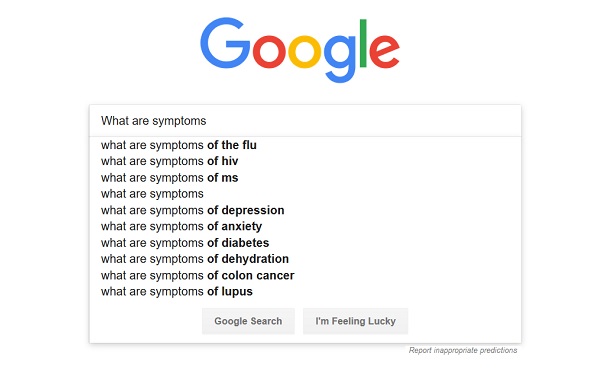 “Knowing whatpatients look for before visiting an ED can help us anticipatetheir needs and direct them to the best sources of care,”says lead author Jeremy Asch.
“Knowing whatpatients look for before visiting an ED can help us anticipatetheir needs and direct them to the best sources of care,”says lead author Jeremy Asch.
Spurred by the rise of sites like WebMD, people haveincreasingly turned to Google and the web to self-diagnose theirhealth woes. And as it turns out, what they're Googlingmay actually be a good predictor of whetherthey're about to make a trip to the emergency room.
|A new study, conducted by researchers at PennMedicine that tracked 150 people's internet activity in 2016 and2017 found that health-related searches doubled in the week beforevisiting the ER.
|More than half of the participants searched for clinicalinformation, such as symptoms, in the week before going to the ER.About 15 percent looked up hospital locations.
|Related: Initiative aims to introduce consumers totelehealth during cold and flu season
|“Even though we're in the early stages of this research, we'velearned a lot about the questions patients ask before making thedecision to visit an emergency department (ED), as well asquestions they have about their care after their visit,” said leadauthor Jeremy Asch of the Penn Medicine Center for Digital Health.“Knowing what patients look for before visiting an ED can help usanticipate their needs and direct them to the best sources of care.And knowing what they search for afterward tells us how we cancommunicate better and help patients on their paths.”
|The searches offered a window into how much patients know orunderstand the conditions they're dealing with. In one casehighlighted in the report, a patient Googled “how large is awalnut” in an apparent attempt to understand the description adoctor had given her of her tumor.
|“The physician caring for that patient might have believedeffective communication took place,” said Asch. “But if the patientthen had to look up the two key terms—'walnut' and 'fibroustumor'—it's clear that the patient communication wasn't effectiveenough.”
|Other studies have showed that people's Facebook posts canpredict prescriptions for depression medication.
|While there roughly half of the patients approached consented tohaving their search results tracked for the purpose of research,it's unclear to what extent internet behavior analysis can become amainstream medical practice. At the very least, however, this studyand others will be able to help the medical world better understandhow to communicate with patients.
|Read more:
Complete your profile to continue reading and get FREE access to BenefitsPRO, part of your ALM digital membership.
Your access to unlimited BenefitsPRO content isn’t changing.
Once you are an ALM digital member, you’ll receive:
- Critical BenefitsPRO information including cutting edge post-reform success strategies, access to educational webcasts and videos, resources from industry leaders, and informative Newsletters.
- Exclusive discounts on ALM, BenefitsPRO magazine and BenefitsPRO.com events
- Access to other award-winning ALM websites including ThinkAdvisor.com and Law.com
Already have an account? Sign In
© 2024 ALM Global, LLC, All Rights Reserved. Request academic re-use from www.copyright.com. All other uses, submit a request to [email protected]. For more information visit Asset & Logo Licensing.








